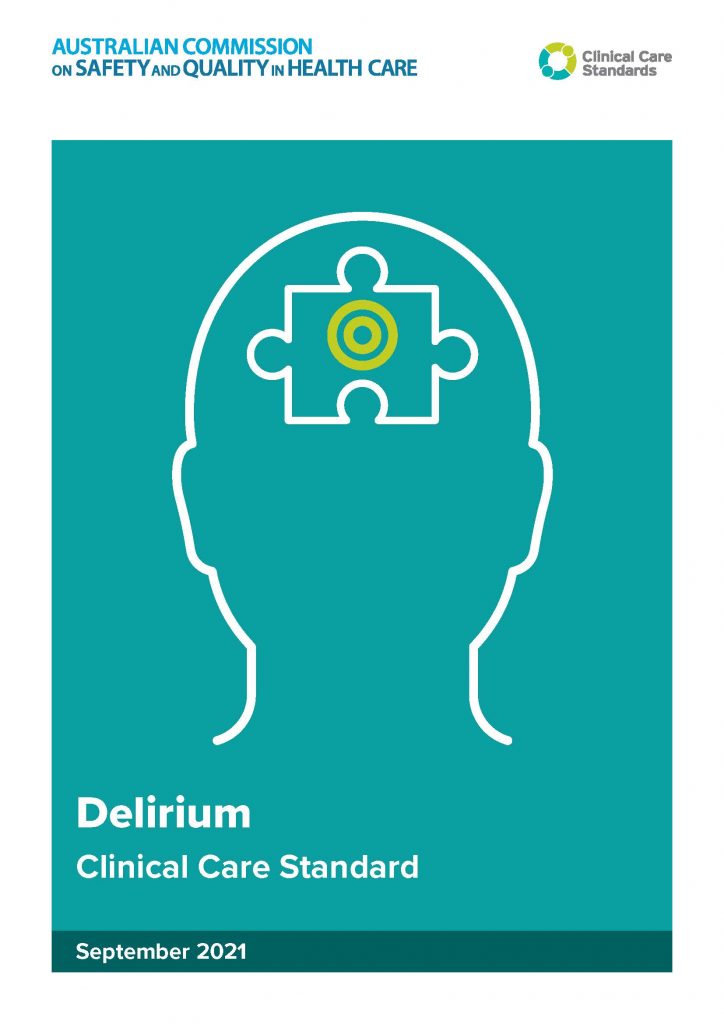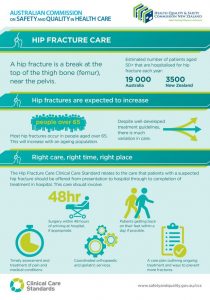The Commission’s Clinical Care Standards aim to support the delivery of appropriate care, reduce unwarranted variation in care, and promote shared decision making between patients, carers and clinicians.
A Clinical Care Standard comprises a small number of quality statements that describe the care patients should be offered by health professionals and health services for a specific clinical condition or defined clinical pathway in line with current best evidence.
The goal of the Delirium Clinical Care Standard is to improve the prevention of delirium in patients at risk and to improve the early diagnosis and treatment of patients with delirium, so as to reduce the severity and duration of delirium.
Compared with people of the same age who do not have delirium, people with delirium have an increased risk of death, increased risk of falls, a greater chance of being discharged to a higher dependency of care, and a greater chance of developing dementia.
The Delirium Clinical Care Standard provides guidance to consumers, clinicians and health services on delivering appropriate care to people at risk of, or with, delirium. 
Implementation resources are also available, and can be used to promote and explain what the Delirium Clinical Care Standard means to health services, clinicians, patients and their carers.
Further information and additional resources on the Delirium Clinical Care Standard are available on the Commission’s website.

Hip fracture is a common debilitating injury particularly for people over the age of 50. The vast majority of hip fractures are associated with falls. The goal of the Hip Fracture Care Clinical Care Standard is to improve the assessment and management of patients with a hip fracture to optimise outcomes and reduce their risk of another fracture.
An important step is to actively identify cognitive impairment when a person presents to hospital as cognitive impairment greatly increases a person’s chance of developing delirium in hospital and the associated poor outcomes. A patient’s cognitive function also needs to be considered when seeking informed consent to treatment and for discussions about the goals and limits of care.
Further information and additional resources on the Hip Fracture Clinical Care Standard are available on the Commission’s website.
